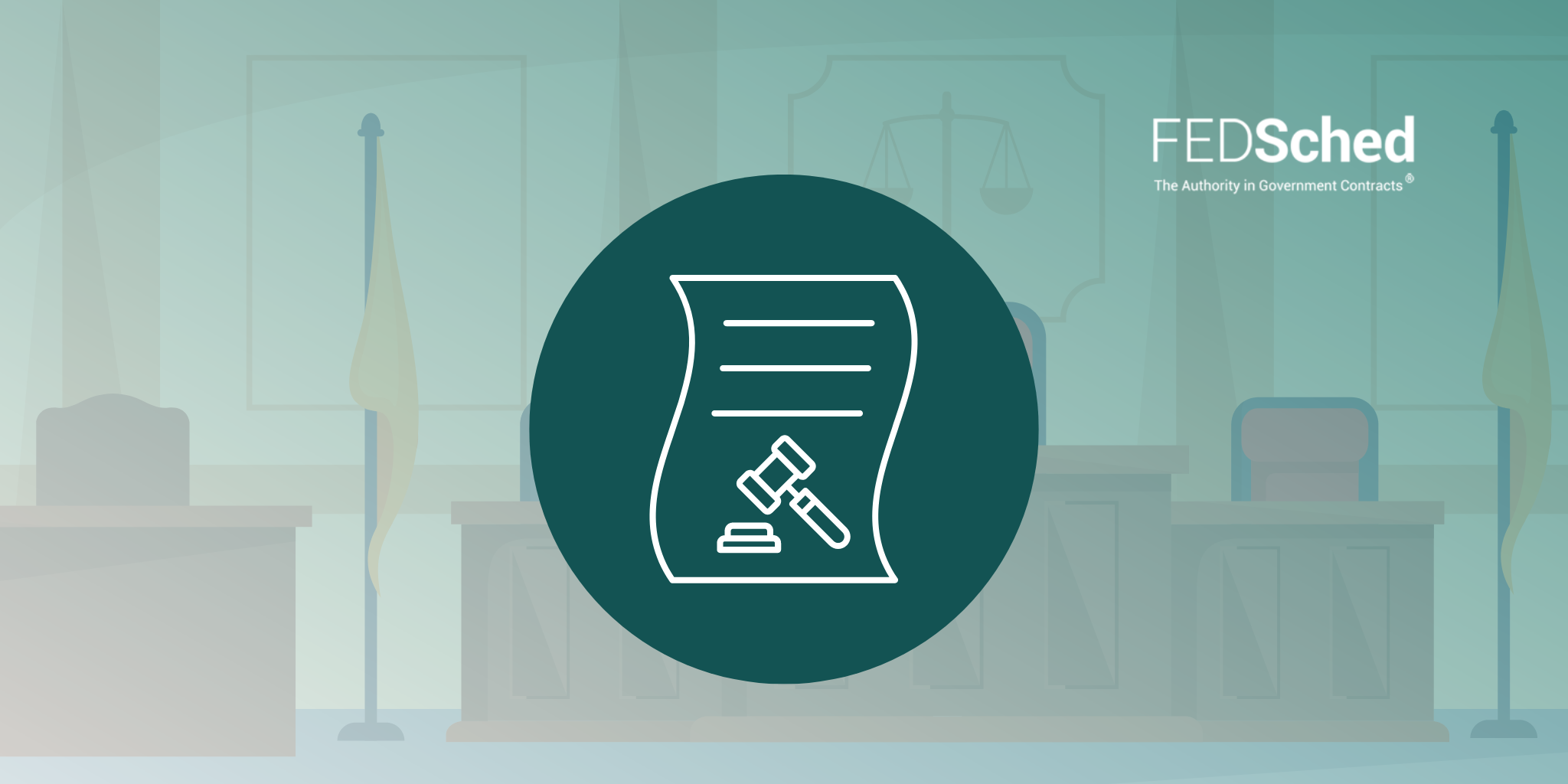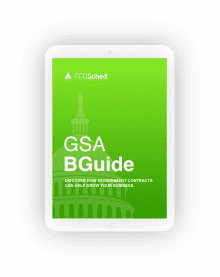 Last month, the U.S. District Court for the Eastern District of Tennessee issued a ruling under Ultima Services Corp v. U.S. Department of Agriculture that significantly impacts how the Small Business Administration (SBA) can determine a company’s eligibility for the 8(a) Program.
Last month, the U.S. District Court for the Eastern District of Tennessee issued a ruling under Ultima Services Corp v. U.S. Department of Agriculture that significantly impacts how the Small Business Administration (SBA) can determine a company’s eligibility for the 8(a) Program.
- What is the 8(a) Program?
- How Does the Recent Court Ruling Impact the 8(a) Program?
- SBA’s Response & Current State of the 8(a) Program
- SBA 8(a) Social Disadvantage Narrative
What is the 8(a) Program?
The 8(a) Program is one of several federal contracting assistance programs geared toward small businesses. The 8(a) Program is specifically intended to help level the playing field for small businesses that are at least 51% owned and controlled by a U.S. citizen(s), who is socially and economically disadvantaged. Unlike the Women-Owned Small Business (WOSB) or Veteran-Owned Small Business (VOSB) Program, the 8(a) program limits companies to a one-time participation for a maximum term of up to nine years.
How Does the Recent Court Ruling Impact the 8(a) Program?
As SBA explains on their website, in evaluating eligibility for the 8(a) program, “individual Asian Pacific Americans, Black Americans, Hispanic Americans, Subcontinent Asian Americans, and Native Americans could demonstrate social disadvantage by simply indicating their belonging to one of these identified groups within the application process. This practice has been known as using a ‘rebuttable presumption of social disadvantage’ or ‘presumption of social disadvantage’.”
The court ruling last month by the U.S. District Court for the Eastern District of Tennessee said that use of rebuttable presumption violated the plaintiff’s (Ultima Services Corporation) right to equal protection of the law and ordered SBA to stop using the practice. In other words, SBA cannot presume individuals are socially disadvantaged based upon their identity within a certain group.
As a result of the July court ruling, to qualify as a socially and economically disadvantaged individual, you must now demonstrate social disadvantage as an individual. To comply with this court order, SBA is requiring companies that were accepted to the 8(a) Program under a presumed social disadvantage to now establish that disadvantage through the submission of a narrative.
SBA’s Response & Current State of the 8(a) Program
In response to the July 19, 2023 court ruling, SBA temporarily closed the 8(a) Program to new applicants and developed interim requirements to review and establish personal social disadvantage for existing 8(a) applicants.
SBA’s Administrator, Isabella Casillas Guzman issued a press release on August 18th to reaffirm support for the 8(a) program, as well as SBA’s commitment to ensuring federal agencies have the guidance they need to continue to award 8(a) contracts. The press release also outlined how the court ruling impacts current and prospective 8(a) participants.
- Prospective 8(a) applicants will have to wait for SBA to reopen the program to new applicants
- In progress 8(a) applicants can continue, but may be required to meet additional requirements
- Existing 8(a) participants should receive communication from SBA detailing if they are required to provide additional information to remain in the program
SBA held a webinar last week to explain the interim actions they are taking to comply with the U.S. District Court ruling. To start, SBA echoed the SBA Administrator’s message, reassuring attendees that the 8(a) program remains important. SBA acknowledged that the timing of the court ruling – the final quarter of the government fiscal year – is not ideal. However, SBA is working hard to help federal agencies continue to award 8(a) contracts.
SBA went on to explain that current 8(a) participants fall within three groups.
- Companies that are controlled and owned in majority by individuals who are presumed to be socially disadvantaged under federal law, which include Asian Pacific Americans, Black Americans, Hispanic Americans, Subcontinent Asian Americans, and Native Americans.
- Entity-owned firms, such as firms owned by Indian tribes, Alaska Native Corporations, or Native Hawaiian Organizations.
- Companies owned by individuals who are not members of a presumed group, but have experienced bias of a chronic and substantial nature.
Depending upon the group you fall under, you may need to submit a social disadvantage narrative to continue to qualify for new 8(a) contracts. As detailed in the chart below, companies that were accepted into the 8(a) Program based upon a presumed social disadvantage must now submit a narrative to establish their individual social advantage.
| 8(a) Participant Type | Action Required | |
| 1. | Companies that are controlled and owned in majority by individuals who are presumed to be socially disadvantaged under federal law, which include Black Americans, Hispanic Americans, Asian Pacific Americans, and Subcontinent Asian Americans. | You are required to submit a social disadvantage narrative in order to establish individual social disadvantage and qualify to receive new 8(a) contracts. |
| 2. | Entity-owned firms, such as firms owned by Indian tribes, Alaska Native Corporations, or Native Hawaiian Organizations. | No action required. |
| 3. | Companies owned by individuals who are not members of a presumed group, but have experienced bias of a chronic and substantial nature and have previously submitted a social disadvantage narrative. | No action required. |
SBA 8(a) Social Disadvantage Narrative
Social disadvantage is defined as individuals “who have been subjected to racial or ethnic prejudice or cultural bias within American society because of their identities as members of groups and without regard to their individual qualities. The social disadvantage must stem from circumstances beyond their control.”
If your company’s acceptance into the 8(a) Program was based on belonging to a group presumed to be socially disadvantaged, you should have received information from SBA about submitting a social disadvantage narrative. Below is a high-level overview of SBA’s Social Disadvantage Narrative requirements.
Please note, narratives should be submitted to SBA via the certify.sba.gov portal, following the instructions you receive from SBA. These narratives are not subject to the Freedom of Information Act (FOIA) and will be held in confidence. SBA will review your narrative and, if approved, your company will receive a letter certifying you “established social disadvantage, and may continue to receive 8(a) contracts and otherwise participate in the 8(a) program.”
If you are uncertain if you are required to submit a social disadvantage narrative, you should reach out to your assigned SBA Business Opportunity Specialist (BOS).
Social Disadvantage Narrative Requirements
- A description of two incidents (one may be sufficient if it is pervasive or recurring) where you were subject to bias in American society, and the incident was related to your:
- Education
- Employment
- Business History
- Incident descriptions should include which identity or characteristic was the basis of the discrimination:
- Race
- Ethnicity
- Gender
- Identifiable Disability
- Long-term Isolation from Mainstream Society
- Incident descriptions should also detail (preferably in the order below):
- When the incident occurred (state specific dates or timeframes)
- Where the incident occurred (state the specific company, institution, or organization, as well as the city and state)
- Who committed the adverse action (state specific name, if possible, as well as title and organization)
- What discriminatory conduct took place
- Why the action or conduct that took place was more likely motivated by bias or discrimination as opposed to other non-discriminatory reasons
- How this incident impacted your entry or advancement in the business world
For additional information, review SBA’s Guide for Writing a Social Disadvantage Narrative and SBA’s Certify Knowledge Base.
Are You an 8(a) Participant Interested in the GSA MAS Contract?
GSA recently established an 8(a) MAS Pool to help 8(a) contractors stand out in the GSA Multiple Award Schedule (MAS) Program. Learn more and contact us for help obtaining your GSA MAS Contract.
